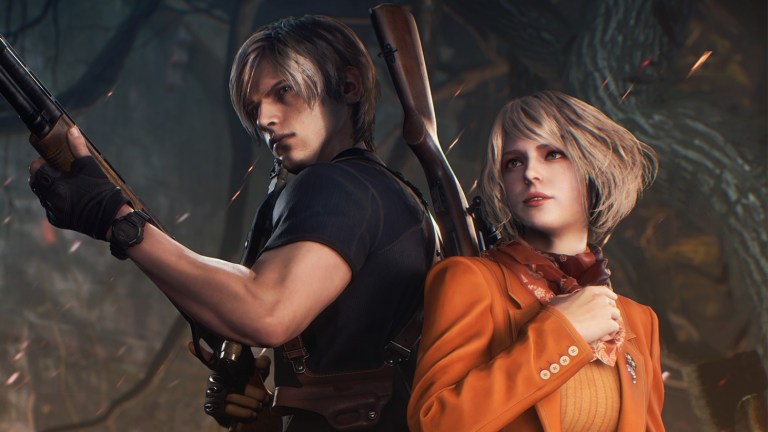Capcom Is Thriving Thanks To The One Thing More Video Game Studios Should Be Doing
Capcom is thriving during a rough time for the industry, and the secret to their success is something that shouldn't be so uncommon.

Capcom recently released its latest financial reports, and the company’s performance is garnering quite a bit of attention. While Capcom’s earnings are down year-over-year, the studio reports that all of its divisions have outperformed internal expectations so far and that the company is well on its way to meeting or surpassing its expectations for the year.
Normally, this information would only be of interest to Capcom shareholders, executives, and fanboys with emotional investments in the company. In this case, though, we’re talking about more than a fiscal quarter. Roughly 10 years after Capcom appeared to be a company in crisis, they are now thriving at a time when turmoil has come to define much of the rest of the video game industry. It is a remarkable turnaround performed during an era in which many other major gaming studios are holding onto the railings and hoping they’ll still be afloat when the waters settle.
So how has Capcom managed to turn things around so quickly? Their recent success can be attributed to a variety of factors, though a closer look at the financial report reveals that their legacy franchises and back catalog releases are doing much of the heavy lifting. That may not sound like a novelty in a franchise-dominated age of sequels, remasters, and remakes, but…it kind of is. At least it is the way that Capcom is doing it.
After all, Capcom’s recent streak of success can most clearly be traced back to 2017’s Resident Evil 7. More than just another sequel in another major franchise, Resident Evil 7 represented both a return to form and the start of a new era for the blockbuster horror series. After a string of titles that pushed Resident Evil further into the action genre (most notably, Resident Evil 6 and Umbrella Corps), Resident Evil 7 took the series back to its pure horror roots. Crucially, it did so via a form of first-person horror gameplay that was becoming more popular on the indie and Double-A scenes but hadn’t yet broken into the mainstream. When Resident Evil 7 was released to nearly universal acclaim and went on to sell over 13 million copies, it did what every great Resident Evil title before it had done: change the landscape of the horror gaming genre.
But Capcom didn’t stop there. Their next major Resident Evil release (2019’s Resident Evil 2 Remake) utilized a modified third-person view rather than that recently successful first-person perspective. Aided by a massive budget and ambitious scope for a remake of a blockbuster masterpiece, Resident Evil 2 became an even bigger success than Resident Evil 7 and looks to be the future of the franchise (or at least its remakes).
It’s not just Resident Evil, though. 2018’s Monster Hunter World turned the internationally beloved series into a global powerhouse. 2023’s Street Fighter 6 learned from and largely absolved the sins of its predecessor by offering an ambitious modern fighting game experience. Along the way, Capcom has also re-released several legacy titles from their back catalogs which were either previously believed to be lost to time or were in desperate need of the updates the company gave them.
What we’ve seen from Capcom over the last seven years or so is a renewed commitment to treating their legacy properties as lucrative rather than simple cash-ins. They are not only diving a bit deeper into one of the richest back catalogs in gaming; they’re treating new releases in their biggest franchises as entries that have to live up to a lofty name rather than simply benefit from them.
It’s not an entirely unique philosophy but it’s a surprisingly uncommon approach at a time when franchises are more powerful than ever. EA’s rare remakes and substantial re-releases can be attributed to various licensing issues, a back catalog buried in studio graveyards, and their reliance on largely similar annual entries in select franchises. Blizzard has famously struggled with some of their recent remasters and legacy sequels, and Ubisoft is currently enduring similar issues. Square Enix is more prolific and ambitious in those areas, but they often rely on low-effort remasters and major Final Fantasy projects while large parts of their back catalog go virtually ignored. Even Rockstar botched the seemingly “can’t miss” remasters of the fabled GTA Trilogy. The less said about Konami in these respects, the better.
It’s perhaps no coincidence that two of the biggest video game companies that generally treat their legacy series with similar levels of care (Nintendo and Sony) are also thriving at the moment compared to the competition. Even then, Sony is a bit too eager to remaster everything a few years after the original game’s debut and Nintendo isn’t exactly known for offering generous access to large portions of their vault.
That isn’t to say Capcom is perfect. They’ve had more than their share of misses in recent years, and some of their biggest franchises (most notably, Mega Man) remain in an odd holding pattern. Yet, even in those misses (Dragon’s Dogma 2, in terms of sales, and Exoprimal) we often find genuine attempts at big ideas that are backed by the success of the love Capcom gives to its biggest names. A company once on the brink of an uncertain future no longer seems to be taking its success for granted and has been building its biggest releases around the same assumption.
There is a degree to which it hurts to praise a legacy company for taking advantage of its position at a time when corporation consolidation threatens to drag us into a future where new ideas, new voices, and new industry players are suppressed before they’re given a genuine chance to succeed. Yet, in the context of where we are, it’s hard not to respect how Capcom no longer seems to believe you will simply buy a game with a familiar name but rather that they must afford such titles the care that made those names valuable in the first place.

